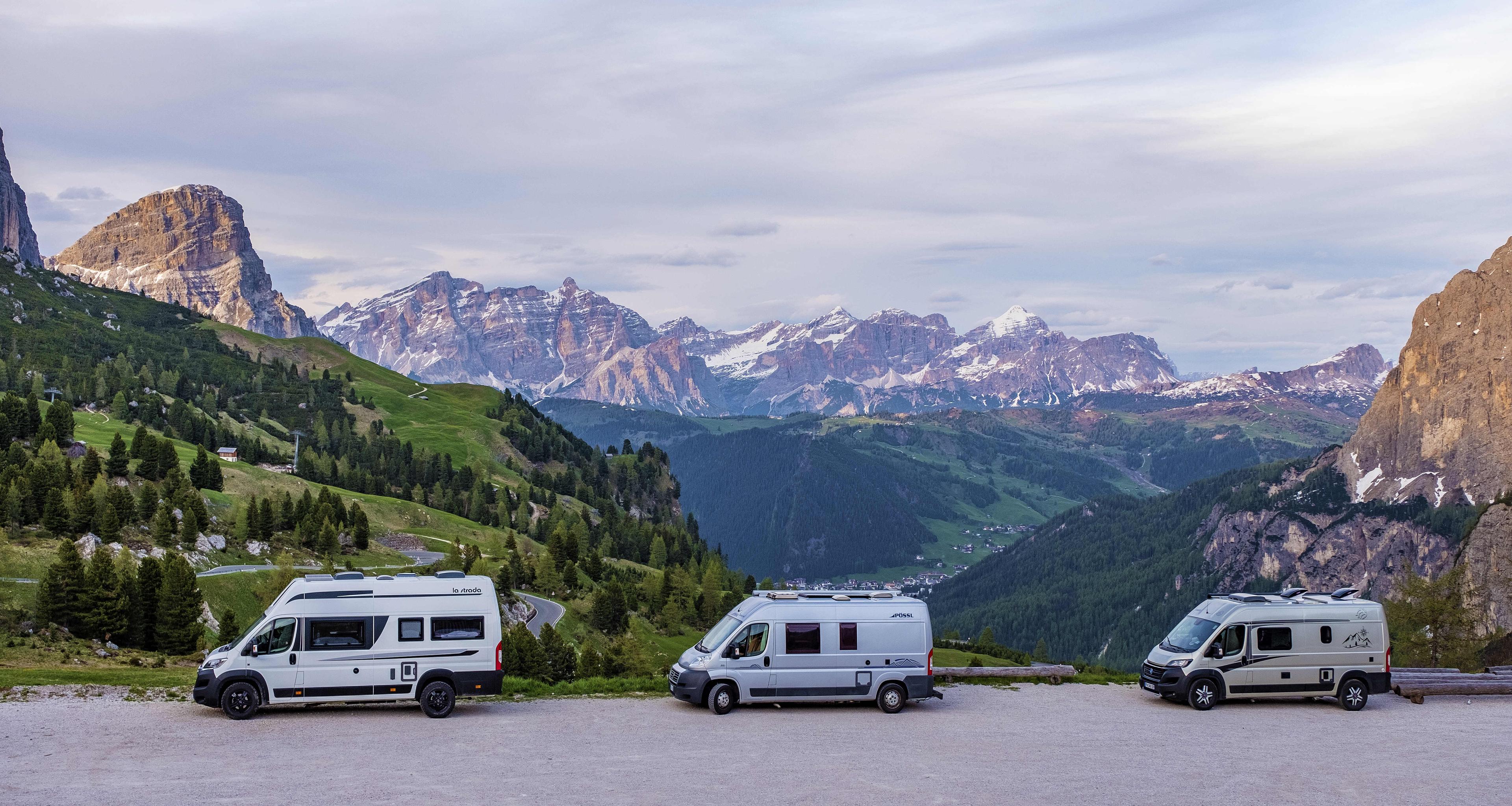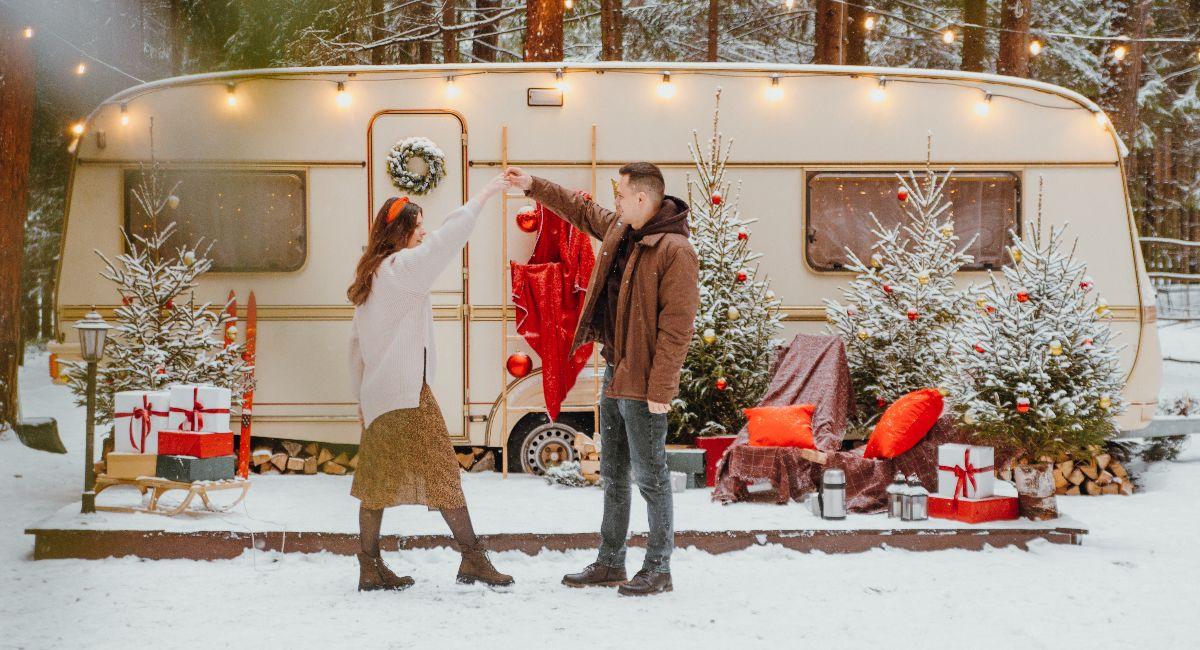Nov 19, 2021
Winter RVing survival guide
Winter RVing survival guide
Discover our winter RVing survival guide. It features info for safe RVing in below freezing temperatures, snow, and more!
Common questions
Blog Post
Education

Winter RV camping is absolutely achievable with proper preparation, offering unique rewards like pristine snow-covered landscapes and peaceful, crowd-free destinations.
Success requires mastering three key areas: winterizing your RV's plumbing system with RV antifreeze, implementing effective heating strategies, including proper insulation and RV skirting, and preparing for winter driving conditions with appropriate gear and safety equipment. While summer remains peak season, winter RV camping is gaining popularity among the 25.1 million annual RV trips recorded in 2024.
Whether you're a seasonal snowbird chasing warmth, a full-time RVer navigating unexpected cold snaps, or an adventure-curious newcomer planning your first winter road trip, this comprehensive guide provides the expert knowledge you need to stay safe, warm, and comfortable in freezing temperatures. For additional RV guidance and insurance insights, explore our comprehensive Learning Center for expert resources.
How Do I Winterize My RV to Prevent Frozen Pipes?
Winterizing your RV involves draining all water and replacing it with non-toxic RV antifreeze to prevent pipes from freezing and bursting, which can cause thousands of dollars in damage. The process typically takes 30 minutes to 2 hours, depending on your RV size, and costs under $25 to complete yourself.
Essential Winterization Steps:
Drain Everything First: Remove all water from your freshwater tank, water heater, and plumbing lines through low-point drains. Open all faucets, including the outdoor shower if equipped, to allow complete drainage.
Use Proper RV Antifreeze: Choose propylene glycol-based RV antifreeze (not automotive antifreeze, which is toxic). You'll need 4-6 gallons for most RVs, with protection ratings down to -50°F or -100°F.
Bypass Your Water Heater: Set bypass valves to prevent filling your water heater with antifreeze, which would waste 6-10 gallons of product.
Pump Antifreeze Through All Lines: Using your RV's water pump, run antifreeze through each faucet until pink fluid appears. Don't forget the toilet, outdoor shower, and any ice maker connections.
Ready to protect your winter adventure? Get a quick winter-ready RV insurance quote that covers you through every season.
What's the Best Way to Keep My RV Warm in Winter?
Effective RV heating requires multiple strategies: proper insulation, RV skirting to seal the underside, strategic heater placement, and managing humidity to prevent condensation. Most RVs lack house-level insulation and aren't designed for cold temperatures, making additional preparations essential.
Multi-Layer Heating Strategy:
Insulation is Key: Insulate windows with plastic on both outside and inside, use thermal drapes on north-facing windows, and consider foil-backed foam boards for extreme cold. Add foil insulation to windows and doors to reduce heat loss, or upgrade to thicker window shades.
RV Skirting is Essential: Skirting your RV is imperative for winter camping, keeping the underbelly, batteries, pipes, and fittings from freezing while helping keep floors warm. Options include vinyl, inflatable air skirts, foam board, or DIY solutions using tarp vinyl.
Smart Heater Use: If connected to electricity, electric heaters are most cost-effective. For off-grid camping, avoid using onboard propane systems that consume fuel rapidly—instead, use small portable propane heaters that 'sip' rather than 'guzzle' propane.
Control Humidity: Maintain 30-40% humidity using a good dehumidifier to prevent condensation that creates unhealthy conditions.
How Do I Drive My RV Safely in Snow and Ice?
Winter RV driving requires reduced speeds, increased following distances, snow chains for traction, and constant weather monitoring—but it's completely manageable with proper preparation and patience. Driving an RV in snow requires plenty of know-how beyond regular car winter driving.
Essential Winter Driving Preparations:
Equipment Checklist: Pack snow chains, ice scraper, snow shovel for digging out your RV, and ensure all lights function correctly for maximum visibility. Keep a first-aid kit, basic tools, and a flashlight handy.
Tire Maintenance: Cold weather impacts tire pressure—check regularly to ensure proper inflation. Install snow chains when needed for improved traction on snowy and icy surfaces.
Safe Driving Practices: Avoid sudden braking or sharp turns on ice-covered roads. Maintain slow, steady speeds and safe distances. Monitor weather forecasts and road conditions—time departures to avoid snowstorms when possible.
Emergency Preparedness: Pack extra emergency supplies, including additional food, water, and camping gear, when winter camping. The National Weather Service provides essential campground weather safety guidelines that every RVer should review before heading out. Use weather alert radio and keep mobile phones charged with backup batteries.
What Winter Gear Do I Need for Cold-Weather RV Camping?
Essential winter RV gear includes heated water hoses, portable heaters, extra insulation materials, emergency supplies, and proper clothing, but smart packing prevents overloading while ensuring safety. When connecting to city water, use heated hoses rated for temperatures down to -20°F with insulated sleeves over fittings.
Critical Gear Categories:
Water System Protection: Use heated hoses like the Camco Freeze Ban when connecting to city water, or fill your freshwater tank instead to avoid frozen connections. Add foam insulation and heat tape around valves and connections most at risk.
Heating Equipment: Choose ceramic heaters with adjustable settings and safety features for quick heat dispersion. Supplement your RV's central heating with electric space heaters or propane buddy heaters when needed.
Insulation Materials: Use reflective insulation like foil-backed foam boards for extreme cold, and weatherstripping to seal gaps around windows and doors. Floor insulation options include interior rugs, carpet tiles, and floor mats to combat cold floors.
Personal Comfort: Layer clothing effectively: thermal base layer, lightweight insulation, and weather-proof shell. Don't forget sunscreen and essential chapstick—winter sun reflection can be intense. Understanding hypothermia and frostbite prevention from the CDC is crucial for any winter outdoor activity, including RV camping.
Where Should I Go for Winter RV Camping?

Choose winter RV destinations based on campground availability, road accessibility, and proximity to winter activities, prioritizing sites with electrical hookups and well-maintained access roads. Research campgrounds that remain open during winter and offer essential amenities like electricity, water, and snow clearance.
Destination Selection Criteria:
Infrastructure Matters: Select campgrounds with safe trip access during winter road conditions and proximity to emergency services. Position your RV for maximum sun exposure to benefit from natural heat during the day.
Activity Access: Select campsites near winter activities like skiing, snowshoeing, or winter festivals to maximize your experience and create community with fellow winter enthusiasts.
Popular Winter Destinations: Oklahoma's Beavers Bend State Park offers winter hiking, fishing, and bird watching, while Robbers Cave State Park provides rock climbing and cave exploration.
How Do I Maintain My RV Systems in Freezing Weather?
Winter RV maintenance focuses on protecting holding tanks, preventing condensation, maintaining battery life, and ensuring your heating system works reliably throughout the cold season. Many modern RVs feature heated holding tank compartments, but older RVs may need added insulation or drop lights for tank protection.
System-by-System Winter Care:
Holding Tank Management: Wait until grey and black tanks are completely full before emptying, and consider tank blankets (12V DC or 120V AC models) for additional protection. Add small amounts of RV antifreeze to the toilet bowl each time you flush to maintain protection.
Battery and Electrical: If storing your RV for months, remove the battery and bring it indoors to extend life and maintain charge. For active winter camping, ensure adequate charging capacity for increased heating demands.
Heating System Maintenance: Have your RV heater professionally tested and serviced before winter—heater failures typically occur on the coldest nights when you're furthest from civilization. Keep furnaces clean using compressed air or a soft brush to remove debris.
Ventilation Management: Keep window shades closed during snowy weather to retain warmth, but ensure adequate ventilation to prevent dangerous carbon monoxide buildup.
Ready to hit the snow with confidence? Get a quick winter-ready RV insurance quote and protect your journey through every season. Trusted by adventurers nationwide, Roamly's best-in-class coverage ensures your winter wanderlust never gets derailed by unexpected setbacks. If you're considering renting out your RV to help offset costs during the off-season, learn about our specialized RV insurance that allows renting without compromising your coverage.
For truck camper enthusiasts planning winter adventures, we also offer tailored truck camper insurance designed for your unique needs and cold-weather challenges.
Insurance terms, coverage, and discounts vary by jurisdiction; consult a licensed agent.
Yes, absolutely! After winterizing your plumbing with RV antifreeze, you can continue using the toilet and wastewater tanks throughout winter. Add a small amount of antifreeze to the toilet bowl each time you flush.
If you're living in your RV full-time, don't winterize it completely—instead maintain moderate interior temperatures and keep water flowing to prevent freezing. Focus on insulation, skirting, and heating strategies instead.
Underestimating heating costs and failing to properly insulate the RV's underside. Skirting your RV is imperative for winter camping—without it, you'll lose massive amounts of heat and risk frozen pipes regardless of other preparations.
Electric heating is most cost-effective when connected to electrical hookups, while propane heating can become expensive quickly due to increased consumption in cold weather. Plan for 20-25% higher fuel costs for heating and potentially higher campground fees at heated facilities.
Quality RV antifreeze provides burst protection down to -50°F to -100°F, making camping possible in extreme conditions with proper preparation. Your comfort limit depends on your RV's insulation, heating capacity, and personal cold tolerance.
Roamly Insurance Group, LLC ("Roamly") is a licensed general agent for affiliated and non-affiliated insurance companies. Roamly is licensed as an agency in all states in which products are offered. Roamly license numbers. Availability and qualification for coverage, terms, rates, and discounts may vary by jurisdiction. We do not in any way imply that the materials on the site or products are available in jurisdictions in which we are not licensed to do business or that we are soliciting business in any such jurisdiction. Coverage under your insurance policy is subject to the terms and conditions of that policy and is ultimately the decision of the buyer.
Policies provided by Roamly are underwritten by Spinnaker Insurance Company, Progressive Insurance Company, Safeco Insurance Company, Foremost Insurance Company, National General Insurance, Mobilitas Insurance Company, and others.
Connect
© 2026 Roamly All rights reserved.
